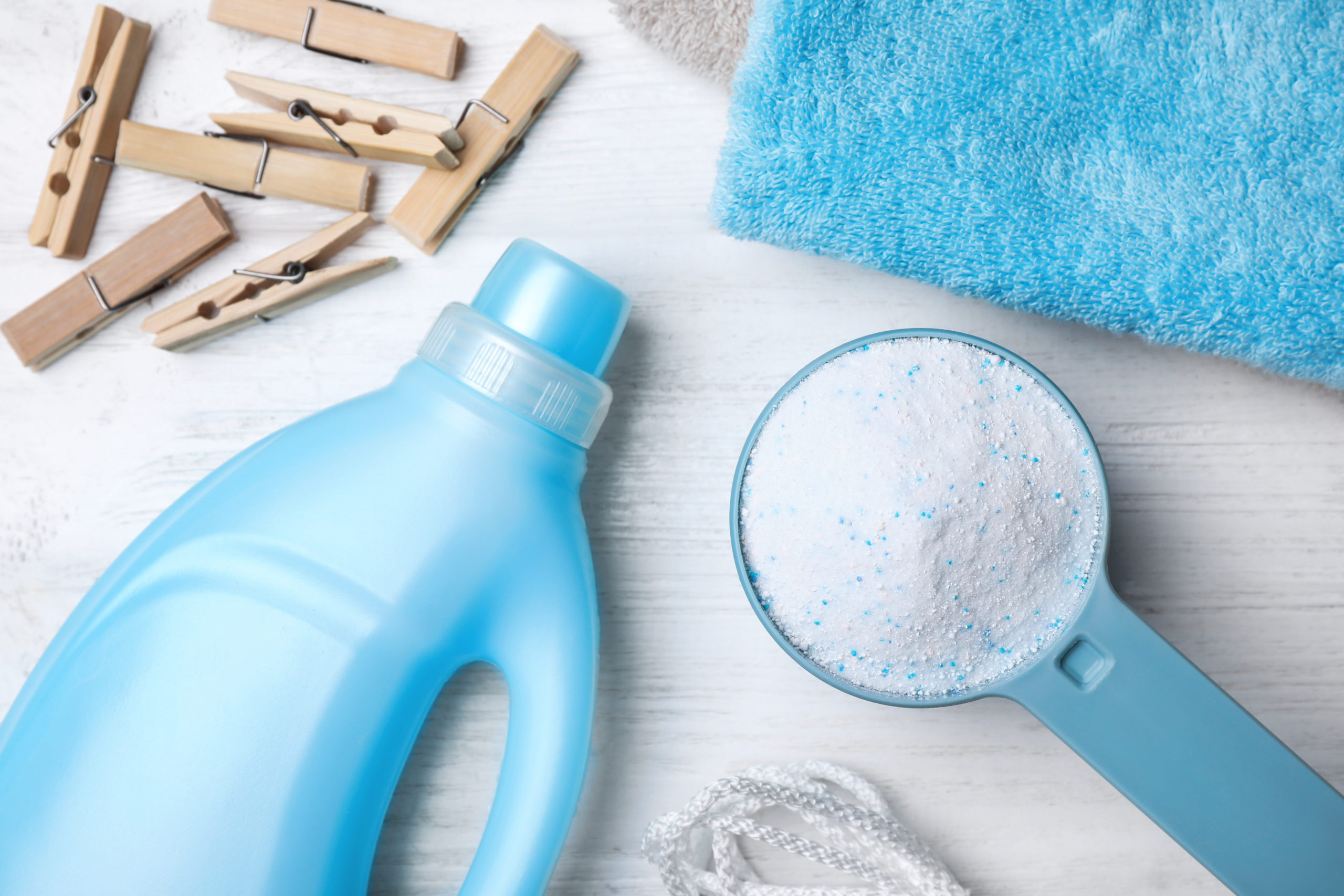Have you ever stared at your overflowing laundry basket, then glanced at your grimy kitchen floor and thought, “Surely these cleaning products aren’t that different?” The temptation to use a quick-and-easy solution like laundry detergent for both tasks is understandable. But can you truly use laundry detergent to wash your floors, or are you asking for trouble?

Image: www.textileaffairs.com
The simple answer is: **it depends**. While laundry detergent can technically clean your floors, it’s not always the best choice. To understand the full picture, we need to delve into the world of cleaning ingredients, floor types, and the potential consequences of using the wrong product.
The Science of Cleaning: Laundry Detergent vs. Floor Cleaners
Understanding the differences between laundry detergent and floor cleaners is crucial to making informed cleaning decisions. Laundry detergent, designed for fabric, primarily tackles the removal of dirt, oil, and stains. It uses surfactants and enzymes to break down these substances and suspend them in water. Floor cleaners, on the other hand, target specific dirt types that accumulate on various floor surfaces. They are formulated to be safe for specific materials, like wood, tile, or linoleum, while also being less likely to leave residue behind.
The Problems with Using Laundry Detergent on Floors
While laundry detergent might seem like a good alternative, it can actually cause more harm than good when used on your floors. Here’s why:
1. Residue Buildup
Laundry detergents, particularly those with added softeners or fabric brighteners, can leave behind a filmy residue on your floors. This residue attracts dirt and can make your floors appear dull and sticky over time. While you might not notice it immediately, this residue can build up and become problematic in the long run.

Image: csclaundry.com
2. Damage to Specific Floor Types
Certain floor types, like wood and stone, are more sensitive to chemicals compared to others. Laundry detergent, with its strong cleaning agents, can strip the protective finishes of these surfaces, leaving them vulnerable to scratches, discoloration, and even warping. It’s crucial to stick to cleaning products specifically formulated for your floor type to ensure its longevity and beauty.
3. Slip and Fall Hazards
Laundry detergent, due to its residue-leaving nature, can create a slippery surface on your floors, particularly when wet. This can pose a safety hazard, increasing the risk of slips and falls, especially for children and elderly individuals. It’s better to prioritize safety by using floor cleaners that are specifically designed to dry quickly and leave a non-slippery surface.
4. Allergic Reactions
Laundry detergent often contains fragrances and dyes that can trigger allergies and skin irritations. While this is unlikely to be a major concern for most people, individuals with sensitive skin or allergies should exercise caution and avoid using laundry detergent on their floors. Opting for fragrance-free and hypoallergenic floor cleaners is always a safer bet.
When Might Laundry Detergent be Acceptable?
While using laundry detergent on your floors isn’t generally advisable, there are a few situations where it might be somewhat acceptable. These situations are limited and require close monitoring:
1. Urgent Cleaning in a Pinch
If you find yourself in a desperate situation with a spilled substance on your floor, and only laundry detergent is readily available, a small amount mixed with water can be used for immediate cleanup. However, it’s essential to thoroughly rinse the area afterward with fresh water to avoid residue buildup.
2. Cleaning Concrete Floors
Concrete floors, unlike delicate wood or tile surfaces, are more resistant to harsh chemicals. If you intend to clean concrete floors, a diluted laundry detergent solution might be acceptable, but it’s still recommended to test a small area first to ensure no adverse effects on the surface.
3. Pre-soaking Stubborn Stains
For exceptionally stubborn stains on more resilient floor types, you may consider pre-soaking the area with a diluted laundry detergent solution before using a suitable floor cleaner. This approach can help loosen the stain, making it easier to remove. However, proceed with caution and always test a small area first.
A Safer and More Effective Approach to Floor Cleaning
For a truly safe and effective way to clean your floors, stick to specialized floor cleaners. These cleaners are specifically formulated to remove dirt and grime without damaging your floor surface. They also dry quickly and leave a non-slippery finish, ensuring a safe environment for everyone. Choose a floor cleaner that is specifically designed for your floor type, such as:
- Wood Floor Cleaner: Designed for hardwood floors, these cleaners are often pH-balanced, preventing damage to the wood’s finish while providing effective cleaning.
- Tile and Grout Cleaner: These cleaners can tackle tough grime and grout stains while being safe for most ceramic and porcelain tile.
- Linoleum Cleaner: Formulated to be gentle on linoleum’s surface, this type of cleaner helps maintain the floor’s shine and prevent discoloration.
Staying Informed: The Importance of Reading Labels
Always read the product labels carefully. They provide crucial information about the product’s intended use, safety precautions, and proper application guidelines. This will help you make informed decisions about which cleaning products are suitable for your specific needs.
Can You Use Laundry Detergent To Wash Floors
Conclusion
While laundry detergent might seem like a convenient alternative for cleaning floors, its use can result in unwanted consequences, such as residue buildup, damage to floor surfaces, and slip and fall hazards. It’s best to opt for specialized floor cleaners designed for specific floor types to ensure a clean, safe, and long-lasting result. Remember, when it comes to cleaning your home, knowledge is power. By understanding the differences between laundry detergent and floor cleaners, you can make informed decisions that keep your home clean, safe, and beautiful for years to come.





